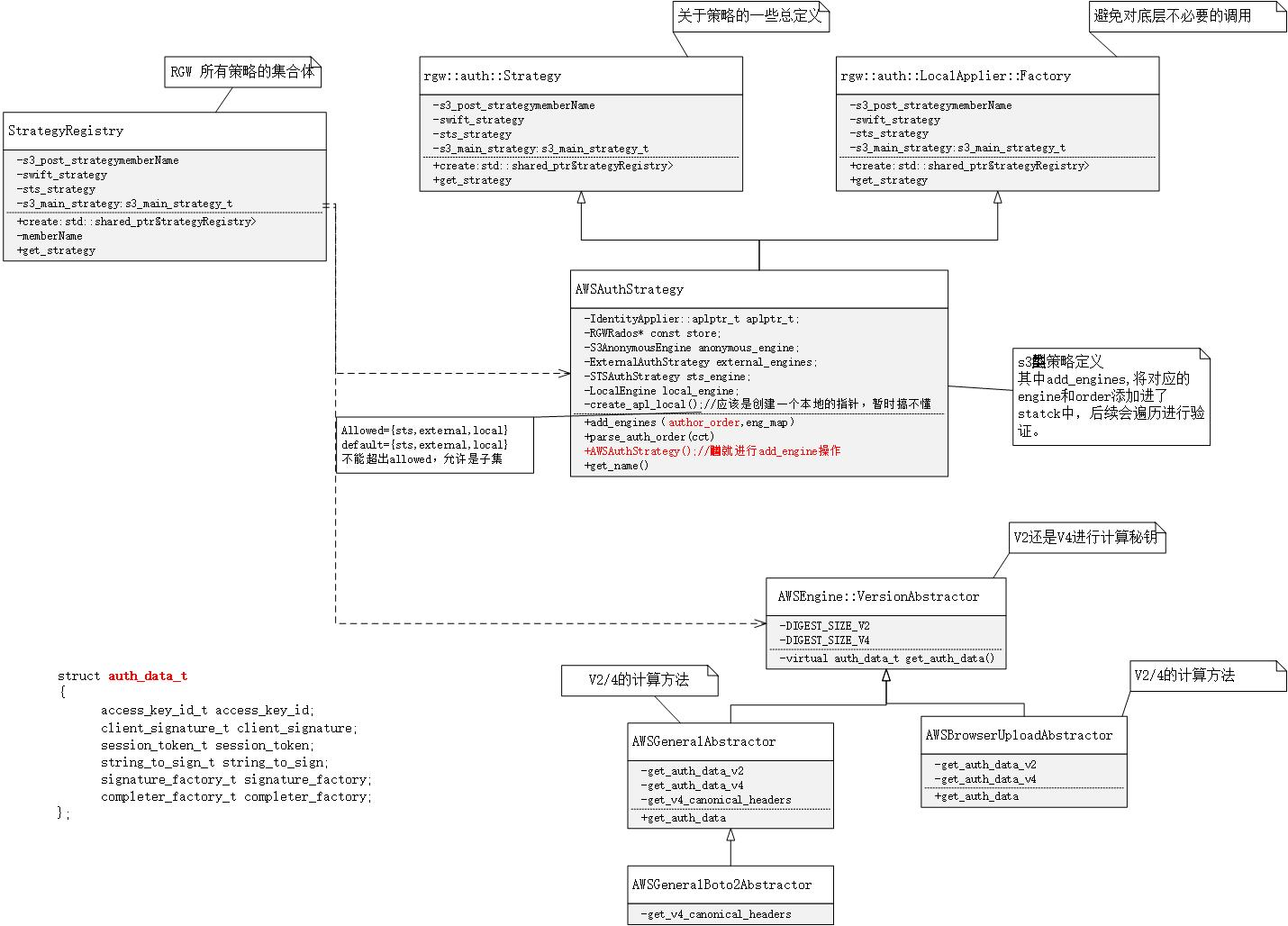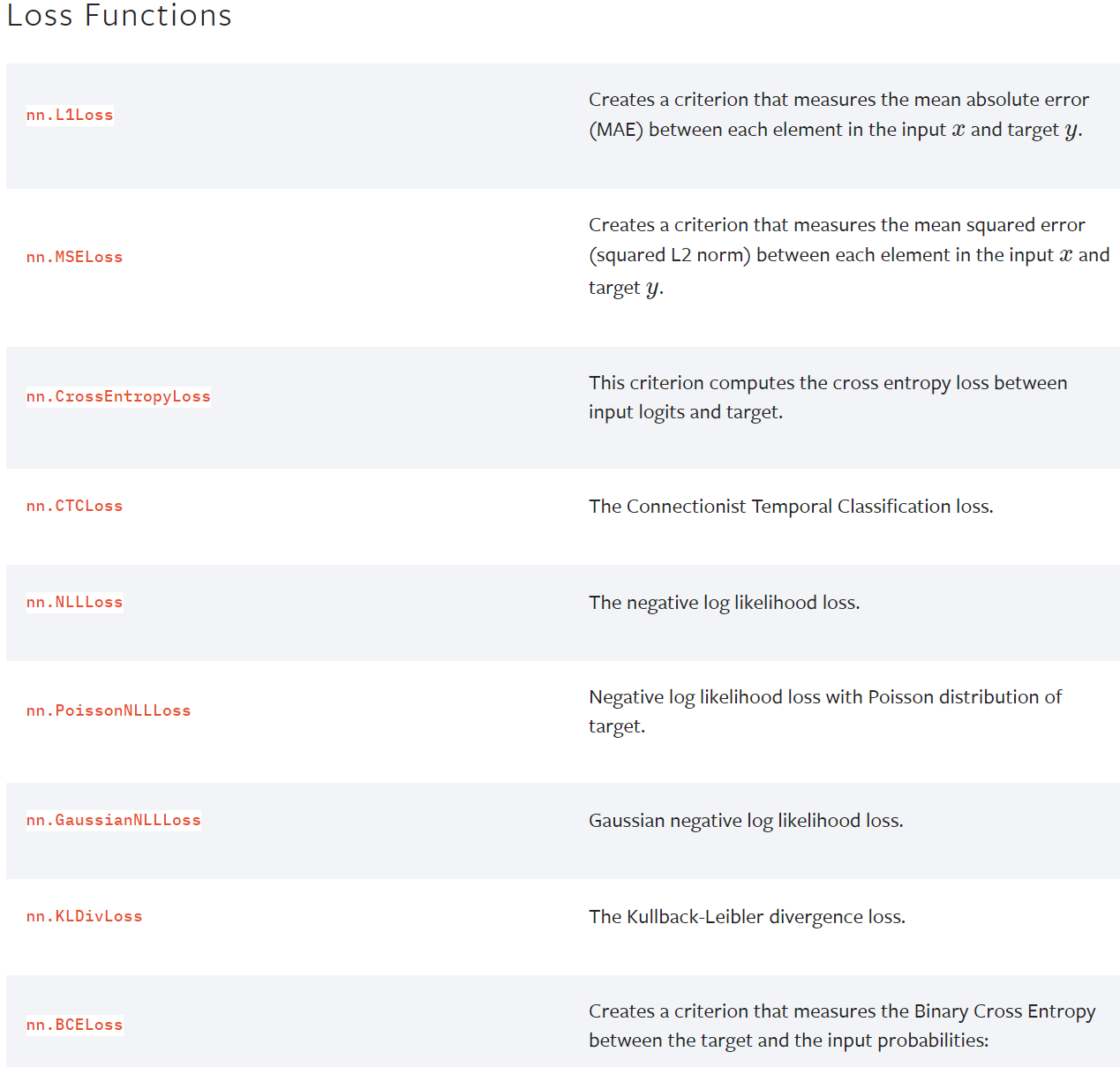---- 整理自 王利涛老师 课程
实验环境:宅学部落 www.zhaixue.cc
文章目录
- 0. 什么是 debugfs
- 1. debugfs 配置编译和注册运行
- 2. 第一个 debugfs 编程示例
- 3. 通过 debugfs 导出整型数据
- 4. 通过 debugfs 导出 16 进制数据
- 5. 通过 debugfs 到处数组
- 6. 通过 debugfs 导出内存数据块
- 7. 通过 debugfs 导出自定义格式数据
- 8. 在 debugfs 下使用 seq_file 接口
- 9. 使用 seq_file 接口访问数组
- 10. 使用 seq_file 接口访问链表
- 11. 通过 debugfs 导出寄存器列表
- 12. 通过 debugfs 修改 RTC 寄存器
- 13. 通过 debugfs 导出 RTC 调试接口
0. 什么是 debugfs
- 天生为调试内核而开发,一个基于内存的文件系统,它是基于 libfs,主要调试功能
- 相比 procfs、sysfs 的优势
- procfs:调试内核、修改寄存器,进程的信息导出到用户空间
proc:需要实现它对应的底层的 read、write 接口,需要添加很多的调试代码 - sysfs:设备模型导出到用户空间
- debugfs:简化了导出的接口,一行代码,就可以将内核变量、数组、链表、内存中数据、寄存器导出导出到用户空间,方便调试
- procfs:调试内核、修改寄存器,进程的信息导出到用户空间
1. debugfs 配置编译和注册运行



2. 第一个 debugfs 编程示例
#include <linux/module.h>
#include <linux/kernel.h>
#include <linux/debugfs.h>static unsigned int hello_value;
static struct dentry *hello_root;static int __init hello_debugfs_init(void)
{hello_root = debugfs_create_dir("hello", NULL);if (IS_ERR(hello_root)) {pr_err("%s: create debugfs dir failed\n", __func__);return PTR_ERR(hello_root);}debugfs_create_u32("hello_reg", 0644, hello_root, &hello_value);return 0;
}static void __exit hello_debugfs_exit(void)
{if (hello_root) {debugfs_remove_recursive(hello_root);}//debugfs_remove();
}module_init(hello_debugfs_init);
module_exit(hello_debugfs_exit);
MODULE_LICENSE("GPL");ifneq ($(KERNELRELEASE),)
obj-m := hello.o
else
EXTRA_CFLAGS += -DDEBUG
KDIR:=/home/code_folder/uboot_linux_rootfs/kernel/linux-5.10.4
ARCH_ARGS := ARCH=arm CROSS_COMPILE=arm-linux-gnueabi-
all:make $(ARCH_ARGS) -C $(KDIR) M=$(PWD) modules
clean:make $(ARCH_ARGS) -C $(KDIR) M=$(PWD) modules clean
endif

3. 通过 debugfs 导出整型数据
#include <linux/module.h>
#include <linux/kernel.h>
#include <linux/debugfs.h>static unsigned int hello_value;
static struct dentry *hello_root;static u8 u8_a;
static u16 u16_a;
static u64 u64_a;
static size_t size_t_a;
static unsigned long ulong_a;
static bool bool_a;static int __init hello_debugfs_init(void)
{hello_root = debugfs_create_dir("hello", NULL);if (IS_ERR(hello_root)) {pr_err("%s: create debugfs dir failed\n", __func__);return PTR_ERR(hello_root);}debugfs_create_u32("hello_reg", 0644, hello_root, &hello_value);debugfs_create_u8("u8_reg", 0644, hello_root, &u8_a);debugfs_create_u16("u16_reg", 0644, hello_root, &u16_a);debugfs_create_u64("u64_reg", 0644, hello_root, &u64_a);debugfs_create_size_t("size_t_reg", 0644, hello_root, &size_t_a);debugfs_create_ulong("ulong_reg", 0644, hello_root, &ulong_a);debugfs_create_bool("bool_reg", 0644, hello_root, &bool_a);return 0;
}static void __exit hello_debugfs_exit(void)
{if (hello_root)debugfs_remove_recursive(hello_root);
}module_init(hello_debugfs_init);
module_exit(hello_debugfs_exit);
MODULE_LICENSE("GPL");ifneq ($(KERNELRELEASE),)
obj-m := hello.o
else
EXTRA_CFLAGS += -DDEBUG
KDIR:=/home/code_folder/uboot_linux_rootfs/kernel/linux-5.10.4
ARCH_ARGS := ARCH=arm CROSS_COMPILE=arm-linux-gnueabi-
all:make $(ARCH_ARGS) -C $(KDIR) M=$(PWD) modules
clean:make $(ARCH_ARGS) -C $(KDIR) M=$(PWD) modules clean
endif


4. 通过 debugfs 导出 16 进制数据
#include <linux/module.h>
#include <linux/kernel.h>
#include <linux/debugfs.h>static unsigned int hello_value;
static struct dentry *hello_root;static u8 u8_a;
static u16 u16_a;
static u64 u64_a;static int __init hello_debugfs_init(void)
{hello_root = debugfs_create_dir("hello", NULL);if (IS_ERR(hello_root)) {pr_err("%s: create debugfs dir failed\n", __func__);return PTR_ERR(hello_root);}debugfs_create_x32("hello_reg", 0644, hello_root, &hello_value);debugfs_create_x8("u8_reg", 0644, hello_root, &u8_a);debugfs_create_x16("u16_reg", 0644, hello_root, &u16_a);debugfs_create_x64("u64_reg", 0644, hello_root, &u64_a);return 0;
}static void __exit hello_debugfs_exit(void)
{if (hello_root) {debugfs_remove_recursive(hello_root);}
}module_init(hello_debugfs_init);
module_exit(hello_debugfs_exit);
MODULE_LICENSE("GPL");ifneq ($(KERNELRELEASE),)
obj-m := hello.o
else
EXTRA_CFLAGS += -DDEBUG
KDIR:=/home/code_folder/uboot_linux_rootfs/kernel/linux-5.10.4
ARCH_ARGS := ARCH=arm CROSS_COMPILE=arm-linux-gnueabi-
all:make $(ARCH_ARGS) -C $(KDIR) M=$(PWD) modules
clean:make $(ARCH_ARGS) -C $(KDIR) M=$(PWD) modules clean
endif
5. 通过 debugfs 到处数组
#include <linux/module.h>
#include <linux/kernel.h>
#include <linux/debugfs.h>static struct dentry *hello_root;
static u32 hello_array[8] = {1,2,3,4,5,6,7,8};static struct debugfs_u32_array array_info = {.array = hello_array,.n_elements = 8,
};static int __init hello_debugfs_init(void)
{int ret = 0;hello_root = debugfs_create_dir("hello", NULL);if (IS_ERR(hello_root)) {pr_err("%s: create debugfs dir failed\n", __func__);return PTR_ERR(hello_root);}debugfs_create_u32_array("hello_array", S_IWUGO, hello_root, &array_info);return ret;
}static void __exit hello_debugfs_exit(void)
{if (hello_root) {debugfs_remove_recursive(hello_root);}
}module_init(hello_debugfs_init);
module_exit(hello_debugfs_exit);
MODULE_LICENSE("GPL");

6. 通过 debugfs 导出内存数据块
#include <linux/module.h>
#include <linux/kernel.h>
#include <linux/fs.h>
#include <linux/debugfs.h>
#include <linux/slab.h>static struct dentry *hello_root;
static u32 hello_array[8] ={ 65, 66, 67, 68, 69, 70, 70, 71 };
static char *mem_block_p = NULL;static struct debugfs_u32_array array_info = {.array = hello_array,.n_elements = 8,
};static struct debugfs_blob_wrapper hello_blob = {.data = hello_array,.size = 8 * sizeof(u32),
};static struct debugfs_blob_wrapper hello_mem;static int __init hello_debugfs_init(void)
{int ret = 0;mem_block_p = kmalloc(32, GFP_ATOMIC);if (!mem_block_p) {pr_err("%s: kmalloc memory failed\n", __func__);return -ENOMEM;}memcpy(mem_block_p, "hello zhaixue.cc\n", 20);hello_mem.data = mem_block_p;hello_mem.size = 32;hello_root = debugfs_create_dir("hello", NULL);if (IS_ERR(hello_root)) {pr_err("%s: create debugfs dir failed\n", __func__);return PTR_ERR(hello_root);}debugfs_create_u32_array("hello_array", S_IWUGO, hello_root, &array_info);debugfs_create_blob("hello_blob", S_IWUGO, hello_root, &hello_blob);debugfs_create_blob("hello_mem", S_IWUGO, hello_root, &hello_mem);return ret;
}static void __exit hello_debugfs_exit(void)
{if (hello_root) {debugfs_remove_recursive(hello_root);}kfree(mem_block_p);
}module_init(hello_debugfs_init);
module_exit(hello_debugfs_exit);
MODULE_LICENSE("GPL");
7. 通过 debugfs 导出自定义格式数据
#include <linux/module.h>
#include <linux/kernel.h>
#include <linux/debugfs.h>static struct dentry *hello_root;static unsigned int hello_value;
static char hello_buf[100];static ssize_t hello_read(struct file *filp, char __user *buf, size_t count,loff_t *ppos)
{int ret;if (*ppos >= 100)return 0;if (*ppos + count > 100)count = 100 - *ppos;ret = copy_to_user(buf, hello_buf, count);if (ret) {return -EFAULT;}*ppos += count;return count;
}static ssize_t hello_write(struct file *filp, const char __user *buf, size_t count,loff_t *ppos)
{int ret;if (*ppos > 100)return 0;if (*ppos + count > 100)count = 100 - *ppos;ret = copy_from_user(hello_buf, buf, count);if (ret)return -EFAULT;*ppos += count;return count;
}static struct file_operations hello_fops = {.owner = THIS_MODULE,.read = hello_read,.write = hello_write,
};static int __init hello_debugfs_init(void)
{hello_root = debugfs_create_dir("hello", NULL);if (IS_ERR(hello_root)) {pr_err("%s: create debugfs dir failed\n", __func__);return PTR_ERR(hello_root);}debugfs_create_x32("hello_reg", 0644, hello_root, &hello_value);debugfs_create_file("hello_buffer", S_IWUGO, hello_root, NULL, &hello_fops);return 0;
}static void __exit hello_debugfs_exit(void)
{if (hello_root) {debugfs_remove_recursive(hello_root);}
}module_init(hello_debugfs_init);
module_exit(hello_debugfs_exit);
MODULE_LICENSE("GPL");
8. 在 debugfs 下使用 seq_file 接口
#include <linux/module.h>
#include <linux/kernel.h>
#include <linux/debugfs.h>
#include <linux/seq_file.h>static struct dentry *hello_root;static char hello_buf[100];static int hello_debugfs_show(struct seq_file *s, void *data)
{char* p = s->private;seq_printf(s, "%s", p);return 0;
}static int hello_open(struct inode* inode, struct file* file)
{return single_open(file, hello_debugfs_show, inode->i_private);
}static ssize_t hello_write(struct file *filp, const char __user *buf, size_t count,loff_t *ppos)
{int ret;if (*ppos > 100)return 0;if (*ppos + count > 100)count = 100 - *ppos;ret = copy_from_user(hello_buf, buf, count);if (ret)return -EFAULT;*ppos += count;return count;
}static struct file_operations hello_fops = {.owner = THIS_MODULE,.open = hello_open,.read = seq_read,.write = hello_write,.llseek = seq_lseek,.release = single_release,
};static int __init hello_debugfs_init(void)
{hello_root = debugfs_create_dir("hello", NULL);if (IS_ERR(hello_root)) {pr_err("%s: create debugfs dir failed\n", __func__);return PTR_ERR(hello_root);}debugfs_create_file("hello_buffer", S_IWUGO, hello_root, hello_buf, &hello_fops);return 0;
}static void __exit hello_debugfs_exit(void)
{if (hello_root) {debugfs_remove_recursive(hello_root);}
}module_init(hello_debugfs_init);
module_exit(hello_debugfs_exit);
MODULE_LICENSE("GPL");
9. 使用 seq_file 接口访问数组
#include <linux/module.h>
#include <linux/kernel.h>
#include <linux/fs.h>
#include <linux/debugfs.h>
#include <linux/seq_file.h>struct hello_struct {unsigned int value;unsigned int id;
};static struct dentry *hello_root;
static struct hello_struct hello_array[8];
static char hello_buf[64];
static int index = 0;static void *hello_seq_start(struct seq_file *s, loff_t *pos)
{printk("------start: *pos = %lld\n", *pos);if (*pos == 0) {return &hello_array[0];} else {*pos = 0;return NULL;}
}static void *hello_seq_next(struct seq_file *s, void *v, loff_t *pos)
{struct hello_struct *p_node = NULL;(*pos)++;printk("------next: *pos = %lld\n", *pos);p_node = &hello_array[*pos];if (*pos == 8) {return NULL;}return p_node;
}static void hello_seq_stop(struct seq_file *s, void *v)
{printk("stop\n");
}static int hello_seq_show(struct seq_file *s, void *v)
{struct hello_struct *p = (struct hello_struct *)v;printk("------show: id = %d\n", p->id);if (p->id > 0) {seq_printf(s, "hello_arr[%d].value = 0x%x\n", p->id-1, \hello_array[p->id-1].value);}return 0;
}static struct seq_operations hello_seq_ops = {.start = hello_seq_start,.next = hello_seq_next,.stop = hello_seq_stop,.show = hello_seq_show,
};static int hello_open(struct inode* inode, struct file* file)
{return seq_open(file, &hello_seq_ops);
}static ssize_t hello_write(struct file *filp, const char __user *buf, size_t len,loff_t *ppos)
{int ret;if (len == 0 || len > 64) {ret = -EFAULT;return ret;}ret = copy_from_user(hello_buf, buf, len);if (ret) {return -EFAULT;}printk("hello_write: index = %d\n", index);hello_array[index].id = index + 1;hello_array[index].value = simple_strtoul(hello_buf, NULL, 0);index++;if (index == 8) {index = 0;}return len;
}static struct file_operations hello_fops = {.owner = THIS_MODULE,.open = hello_open,.read = seq_read,.write = hello_write,.llseek = seq_lseek,
};static int __init hello_debugfs_init(void)
{hello_root = debugfs_create_dir("hello", NULL);if (IS_ERR(hello_root)) {pr_err("%s: create debugfs dir failed\n", __func__);return PTR_ERR(hello_root);}debugfs_create_file("hello_buffer", S_IWUGO, hello_root, hello_array, &hello_fops);return 0;
}static void __exit hello_debugfs_exit(void)
{if (hello_root) {debugfs_remove_recursive(hello_root);}
}module_init(hello_debugfs_init);
module_exit(hello_debugfs_exit);
MODULE_LICENSE("GPL");


10. 使用 seq_file 接口访问链表
#include <linux/module.h>
#include <linux/kernel.h>
#include <linux/fs.h>
#include <linux/debugfs.h>
#include <linux/seq_file.h>
#include <linux/slab.h>static struct dentry *hello_root;static char hello_buf[64];
static struct list_head hello_list_head;struct hello_struct {unsigned int value;struct list_head node;
};static void *hello_seq_start(struct seq_file *s, loff_t *pos)
{return seq_list_start(&hello_list_head, *pos);
}static void *hello_seq_next(struct seq_file *s, void *v, loff_t *pos)
{return seq_list_next(v, &hello_list_head, pos);
}static void hello_seq_stop(struct seq_file *s, void *v)
{// printk("stop\n");
}static int hello_seq_show(struct seq_file *s, void *v)
{struct hello_struct *p_node = list_entry(v, struct hello_struct, node);seq_printf(s, "node = 0x%x\n", p_node->value);return 0;
}static struct seq_operations hello_seq_ops = {.start = hello_seq_start,.next = hello_seq_next,.stop = hello_seq_stop,.show = hello_seq_show,
};static int hello_open(struct inode* inode, struct file* file)
{return seq_open(file, &hello_seq_ops);
}static ssize_t hello_write(struct file *filp, const char __user *buf, size_t len,loff_t *ppos)
{int ret;struct hello_struct *data;if (len == 0 || len > 64) {ret = -EFAULT;return ret;}ret = copy_from_user(hello_buf, buf, len);if (ret) {return -EFAULT;}data = kmalloc(sizeof(struct hello_struct), GFP_KERNEL);if (data != NULL) {data->value = simple_strtoul(hello_buf, NULL, 0);list_add(&data->node, &hello_list_head);}return len;
}static struct file_operations hello_fops = {.open = hello_open,.read = seq_read,.write = hello_write,.llseek = seq_lseek,
};static int __init hello_debugfs_init(void)
{int ret = 0;INIT_LIST_HEAD(&hello_list_head);hello_root = debugfs_create_dir("hello", NULL);if (IS_ERR(hello_root)) {pr_err("%s: create debugfs dir failed\n", __func__);return PTR_ERR(hello_root);}debugfs_create_file("hello_list", S_IWUGO, hello_root, NULL, &hello_fops);return 0;
}static void __exit hello_debugfs_exit(void)
{struct hello_struct *data;if (hello_root) {debugfs_remove_recursive(hello_root);}while (!list_empty(&hello_list_head)) {data = list_entry(hello_list_head.next, struct hello_struct, node);list_del(&data->node);kfree(data);}
}module_init(hello_debugfs_init);
module_exit(hello_debugfs_exit);
MODULE_LICENSE("GPL");
11. 通过 debugfs 导出寄存器列表
#include <linux/module.h>
#include <linux/init.h>
#include <linux/fs.h>
#include <linux/io.h>
#include <linux/cdev.h>
#include <linux/module.h>
#include <linux/interrupt.h>
#include <linux/debugfs.h>typedef volatile struct {unsigned long RTCDR; /* +0x00: data register */unsigned long RTCMR; /* +0x04: match register */unsigned long RTCLR; /* +0x08: load register */unsigned long RTCCR; /* +0x0C: control register */unsigned long RTCIMSC; /* +0x10: interrupt mask set and clear register*/unsigned long RTCRIS; /* +0x14: raw interrupt status register*/unsigned long RTCMIS; /* +0x18: masked interrupt status register */unsigned long RTCICR; /* +0x1C: interrupt clear register */
} rtc_reg_t;struct rtc_time {unsigned int year;unsigned int mon;unsigned int day;unsigned int hour;unsigned int min;unsigned int sec;
};#define RTC_BASE 0x10017000static volatile rtc_reg_t *regs = NULL;
static unsigned long cur_time = 0;
static struct rtc_time tm;static dev_t devno;
static struct cdev *rtc_cdev;static void rtc_time_translate(void)
{tm.hour = (cur_time % 86400) / 3600;tm.min = (cur_time % 3600) / 60;tm.sec = cur_time % 60;
}static void set_rtc_alarm(void)
{unsigned long tmp = 0;tmp = regs->RTCCR;tmp = tmp & 0xFFFFFFFE;regs->RTCCR = tmp;cur_time = regs->RTCDR;regs->RTCMR = cur_time + 15;regs->RTCICR = 0x1;regs->RTCIMSC = 0x1;tmp = regs->RTCCR;tmp = tmp | 0x1;regs->RTCCR = tmp;
}static irqreturn_t rtc_alarm_handler(int irq, void *dev_id)
{cur_time = regs->RTCDR;rtc_time_translate();printk("\nalarm: beep~ beep~ \n");printk("\n %d:%d:%d\n", tm.hour, tm.min, tm.sec);regs->RTCICR = 1;set_rtc_alarm();return IRQ_HANDLED;
}static struct file_operations rtc_fops;static const struct debugfs_reg32 rtc_reg_array[] = {{.name = "RTCDR",.offset = 0x0},{.name = "RTCMR",.offset = 0x4},{.name = "RTCLR",.offset = 0x8},{.name = "RTCCR",.offset = 0xC},{.name = "RTCIMSC",.offset = 0x10},{.name = "RTCRIS",.offset = 0x14},{.name = "RTCMIS",.offset = 0x18},{.name = "RTCICR",.offset = 0x1C}
};static struct debugfs_regset32 rtc_regset; // <------
static struct dentry *hello_root;static int __init rtc_init(void)
{int ret = 0;regs = (rtc_reg_t *)ioremap(RTC_BASE, sizeof(rtc_reg_t));ret = alloc_chrdev_region(&devno, 0, 1, "rtc-demo");if (ret) {printk("alloc char device number failed!\n");return ret;}printk("RTC devnum:%d minornum:%d\n", MAJOR(devno), MINOR(devno));rtc_cdev = cdev_alloc();cdev_init(rtc_cdev, &rtc_fops);ret = cdev_add(rtc_cdev, devno, 1);if (ret < 0) {printk("cdev_add failed..\n");return -1;} else {printk("Register char module: rtc success!\n");}ret = request_irq(39, rtc_alarm_handler, 0, "rtc-test", NULL);if (ret == -1) {printk("request_irq failed!\n");return -1;}set_rtc_alarm();hello_root = debugfs_create_dir("hello", NULL);if (IS_ERR(hello_root)) {pr_err("%s: create rtc dir failed\n", __func__);return PTR_ERR(hello_root);}rtc_regset.regs = rtc_reg_array;rtc_regset.nregs = 8;rtc_regset.base = (void *)regs;debugfs_create_regset32("reglist", 0644, hello_root, &rtc_regset); // <------return 0;
}static void __exit rtc_exit(void)
{if (hello_root) {debugfs_remove_recursive(hello_root);}free_irq(39, NULL);cdev_del(rtc_cdev);unregister_chrdev_region(devno, 1);
}module_init(rtc_init);
module_exit(rtc_exit);
MODULE_LICENSE("GPL");




12. 通过 debugfs 修改 RTC 寄存器
- 关闭内核自带的 rtc 驱动
- 打开 debugfs 选项


#include <linux/module.h>
#include <linux/init.h>
#include <linux/fs.h>
#include <linux/io.h>
#include <linux/cdev.h>
#include <linux/module.h>
#include <linux/debugfs.h>
#include <linux/seq_file.h>
#include <linux/interrupt.h>typedef volatile struct {unsigned int RTCDR; /* +0x00: data register */unsigned int RTCMR; /* +0x04: match register */unsigned int RTCLR; /* +0x08: load register */unsigned int RTCCR; /* +0x0C: control register */unsigned int RTCIMSC; /* +0x10: interrupt mask set and clear register*/unsigned int RTCRIS; /* +0x14: raw interrupt status register*/unsigned int RTCMIS; /* +0x18: masked interrupt status register */unsigned int RTCICR; /* +0x1C: interrupt clear register */
}rtc_reg_t;struct rtc_time {unsigned int year;unsigned int mon;unsigned int day;unsigned int hour;unsigned int min;unsigned int sec;
};#define RTC_BASE 0x10017000static volatile rtc_reg_t *regs = NULL;
static unsigned long cur_time = 0;
static struct rtc_time tm;static void rtc_time_translate(void)
{tm.hour = (cur_time % 86400) / 3600;tm.min = (cur_time % 3600) / 60;tm.sec = cur_time % 60;
}static void rtc_tm_to_time(void)
{cur_time = tm.hour * 3600 + tm.min * 60 + tm.sec;
}static dev_t devno;
static struct cdev *rtc_cdev;static int rtc_open(struct inode *inode, struct file *fp)
{return 0;
}static int rtc_release(struct inode *inode, struct file *fp)
{return 0;
}static ssize_t rtc_read(struct file *fp, char __user *buf, size_t size, loff_t *pos)
{cur_time = regs->RTCDR;rtc_time_translate();if (copy_to_user(buf, &tm, sizeof(struct rtc_time)) != 0){printk("rtc_read error!\n");return -1;}return sizeof(struct rtc_time);
}static ssize_t rtc_write(struct file *fp, const char __user *buf, size_t size, loff_t *pos)
{int len = 0;len = sizeof(struct rtc_time);if (copy_from_user(&tm, buf, len) != 0) {printk("rtc_write error!\n");return -1;}rtc_tm_to_time();regs->RTCLR = cur_time;return len;
}/* standard file I/O system call interface */
static const struct file_operations rtc_fops = {.owner = THIS_MODULE,.read = rtc_read,.write = rtc_write,.open = rtc_open,.release = rtc_release,
};static void set_rtc_alarm(void)
{unsigned int tmp = 0;tmp = regs->RTCCR;tmp = tmp & 0xFFFFFFFE;regs->RTCCR = tmp;cur_time = regs->RTCDR;regs->RTCMR = cur_time + 25; // <------regs->RTCICR = 1;regs->RTCIMSC = 1; // <------tmp = regs->RTCCR;tmp = tmp | 0x1;regs->RTCCR = tmp;
}static irqreturn_t rtc_alarm_handler(int irq, void *dev_id)
{cur_time = regs->RTCDR;rtc_time_translate();printk("\nalarm: beep~ beep~ \n");printk("\n %d:%d:%d\n", tm.hour, tm.min, tm.sec);regs->RTCICR = 1;set_rtc_alarm();return IRQ_HANDLED;
}static struct dentry *rtc_root;
static struct dentry *reg_dir;
static u32 *reg_p = NULL;static int __init rtc_init(void)
{int ret = 0;regs = (rtc_reg_t *)ioremap(RTC_BASE, sizeof(rtc_reg_t));printk("rtc_init\n");ret = alloc_chrdev_region(&devno, 0, 1, "rtc-demo");if (ret) {printk("alloc char device number failed!\n");return ret;}printk("RTC devnum:%d minornum:%d\n", MAJOR(devno), MINOR(devno));rtc_cdev = cdev_alloc();cdev_init(rtc_cdev, &rtc_fops);ret = cdev_add(rtc_cdev, devno, 1);if (ret < 0) {printk("cdev_add failed..\n");return -ret;} else {printk("Register char module: rtc success!\n");}ret = request_irq(39, rtc_alarm_handler, 0, "rtc-test", NULL);if (ret == -1) {printk("request_irq failed!\n");return -ret;}rtc_root = debugfs_create_dir("rtc", NULL);if (IS_ERR(rtc_root)) {pr_err("%s: create rtc dir failed\n", __func__);return PTR_ERR(rtc_root);}reg_dir = debugfs_create_dir("reg_list", rtc_root);if (IS_ERR(reg_dir)) {pr_err("%s: create reg dir failed\n", __func__);return PTR_ERR(reg_dir);}reg_p = (u32 *)regs;debugfs_create_x32("RTCDR", 0644, reg_dir, reg_p);debugfs_create_x32("RTCMR", 0644, reg_dir, reg_p + 0x01);debugfs_create_x32("RTCLR", 0644, reg_dir, reg_p + 0x02);debugfs_create_x32("RTCCR", 0644, reg_dir, reg_p + 0x03);debugfs_create_x32("RTCIMSC", 0644, reg_dir, reg_p + 0x04);debugfs_create_x32("RTCRIS", 0644, reg_dir, reg_p + 0x05);debugfs_create_x32("RTCMIS", 0644, reg_dir, reg_p + 0x06);debugfs_create_x32("RTCICR", 0644, reg_dir, reg_p + 0x07);set_rtc_alarm();return 0;
}static void __exit rtc_exit(void)
{if (rtc_root) {debugfs_remove_recursive(rtc_root);}free_irq(39, NULL);cdev_del(rtc_cdev);unregister_chrdev_region(devno, 1);
}module_init(rtc_init);
module_exit(rtc_exit);
MODULE_LICENSE("GPL");
13. 通过 debugfs 导出 RTC 调试接口
#include <linux/module.h>
#include <linux/init.h>
#include <linux/fs.h>
#include <linux/io.h>
#include <linux/cdev.h>
#include <linux/module.h>
#include <linux/debugfs.h>
#include <linux/seq_file.h>
#include <linux/interrupt.h>typedef volatile struct {unsigned int RTCDR; /* +0x00: data register */unsigned int RTCMR; /* +0x04: match register */unsigned int RTCLR; /* +0x08: load register */unsigned int RTCCR; /* +0x0C: control register */unsigned int RTCIMSC; /* +0x10: interrupt mask set and clear register*/unsigned int RTCRIS; /* +0x14: raw interrupt status register*/unsigned int RTCMIS; /* +0x18: masked interrupt status register */unsigned int RTCICR; /* +0x1C: interrupt clear register */
} rtc_reg_t;struct rtc_time {unsigned int year;unsigned int mon;unsigned int day;unsigned int hour;unsigned int min;unsigned int sec;
};#define RTC_BASE 0x10017000#define CUR_TIME_CMD 1 /* command for set/get current time */
#define ALARM_TIME_CMD 2 /* command for set/get alarm time */static volatile rtc_reg_t *regs = NULL;
static unsigned long cur_time = 0; /* current time */
static unsigned long alarm_time = 0; /* alarm time */
static struct rtc_time tm; /* global time */
static char rtc_buf[64]; /* buffer for time string input from user space */static void rtc_time_to_tm(unsigned long time)
{tm.hour = (time % 86400) / 3600;tm.min = (time % 3600) / 60;tm.sec = time % 60;
}static void rtc_tm_to_time(unsigned long *time)
{*time = tm.hour * 3600 + tm.min * 60 + tm.sec;
}static void rtc_string_to_tm(void)
{tm.hour = (rtc_buf[0] - '0') * 10 + (rtc_buf[1] - '0');tm.min = (rtc_buf[2] - '0') * 10 + (rtc_buf[3] - '0');tm.sec = (rtc_buf[4] - '0') * 10 + (rtc_buf[5] - '0');
}static void rtc_tm_to_string(void)
{rtc_buf[0] = tm.hour / 10 + '0';rtc_buf[1] = tm.hour % 10 + '0';rtc_buf[2] = tm.min / 10 + '0';rtc_buf[3] = tm.min % 10 + '0';rtc_buf[4] = tm.sec / 10 + '0';rtc_buf[5] = tm.sec % 10 + '0';rtc_buf[6] = '\n';rtc_buf[7] = '\0';
}static dev_t devno;
static struct cdev *rtc_cdev;static int rtc_open(struct inode *inode, struct file *fp)
{return 0;
}static int rtc_release(struct inode *inode, struct file *fp)
{return 0;
}static ssize_t rtc_read(struct file *fp, char __user *buf, size_t size, loff_t *pos)
{cur_time = regs->RTCDR;rtc_time_to_tm(cur_time);if (copy_to_user(buf, &tm, sizeof(struct rtc_time)) != 0){printk("rtc_read error!\n");return -1;}return sizeof(struct rtc_time);
}static ssize_t rtc_write(struct file *fp, const char __user *buf, size_t size, loff_t *pos)
{int len = 0;len = sizeof(struct rtc_time);if (copy_from_user(&tm, buf, len) != 0) {printk("rtc_write error!\n");return -1;}rtc_tm_to_time(&cur_time);regs->RTCLR = cur_time;return len;
}/* standard file I/O system call */
static const struct file_operations rtc_fops = {.owner = THIS_MODULE,.read = rtc_read,.write = rtc_write,.open = rtc_open,.release = rtc_release,
};static void set_rtc_alarm(void)
{unsigned int tmp = 0;tmp = regs->RTCCR;tmp = tmp & 0xFFFFFFFE;regs->RTCCR = tmp;cur_time = regs->RTCDR;regs->RTCMR = alarm_time;regs->RTCICR = 1;regs->RTCIMSC = 1; // <------tmp = regs->RTCCR;tmp = tmp | 0x1;regs->RTCCR = tmp;
}static irqreturn_t rtc_alarm_handler(int irq, void *dev_id)
{cur_time = regs->RTCDR;rtc_time_to_tm(cur_time);printk("\nalarm: beep~ beep~ \n");printk("\n %d:%d:%d\n", tm.hour, tm.min, tm.sec);regs->RTCICR = 1;return IRQ_HANDLED;
}static ssize_t rtc_debugfs_read(struct file *filp, char __user *buf,size_t count, loff_t *ppos, int cmd)
{int ret;if (*ppos >= 64)return 0;if (*ppos + count > 64)count = 64 - *ppos;if (cmd == CUR_TIME_CMD) {cur_time = regs->RTCDR;rtc_time_to_tm(cur_time);}if (cmd == ALARM_TIME_CMD) {alarm_time = regs->RTCMR;rtc_time_to_tm(alarm_time);}rtc_tm_to_string();ret = copy_to_user(buf, rtc_buf, count);if (ret)return -EFAULT;*ppos += count;return count;
}static ssize_t rtc_debugfs_write(struct file *filp, const char __user *buf, size_t count, loff_t *ppos, int cmd)
{int ret;if (*ppos > 64)return 0;if (*ppos + count > 64)count = 64 - *ppos;ret = copy_from_user(rtc_buf, buf, count);if (ret)return -EFAULT;*ppos += count;rtc_string_to_tm();if (cmd == CUR_TIME_CMD) {rtc_tm_to_time(&cur_time);regs->RTCLR = cur_time;}if (cmd == ALARM_TIME_CMD) {rtc_tm_to_time(&alarm_time);set_rtc_alarm();}return count;
}/* set current time interface */
static ssize_t rtc_cur_time_read(struct file *filp, char __user *buf, size_t count, loff_t *ppos)
{return rtc_debugfs_read(filp, buf, count, ppos, CUR_TIME_CMD);
}static ssize_t rtc_cur_time_write(struct file *filp, const char __user *buf, size_t count, loff_t *ppos)
{return rtc_debugfs_write(filp, buf, count, ppos, CUR_TIME_CMD);
}static const struct file_operations rtc_cur_time_fops = {.read = rtc_cur_time_read,.write = rtc_cur_time_write,
};/* set alarm time interface */
static ssize_t rtc_alarm_time_read(struct file *filp, char __user *buf, size_t count, loff_t *ppos)
{return rtc_debugfs_read(filp, buf, count, ppos, ALARM_TIME_CMD);
}static ssize_t rtc_alarm_time_write(struct file *filp, const char __user *buf, size_t count, loff_t *ppos)
{return rtc_debugfs_write(filp, buf, count, ppos, ALARM_TIME_CMD);
}static const struct file_operations rtc_alarm_time_fops = {.read = rtc_alarm_time_read,.write = rtc_alarm_time_write,
};static struct dentry *rtc_root;
static struct dentry *reg_dir;
static u32 *reg_p = NULL;static int __init rtc_init(void)
{int ret = 0;regs = (rtc_reg_t *)ioremap(RTC_BASE, sizeof(rtc_reg_t));printk("rtc_init\n");ret = alloc_chrdev_region(&devno, 0, 1, "rtc-demo");if (ret) {printk("alloc char device number failed!\n");return ret;}printk("RTC devnum:%d minornum:%d\n", MAJOR(devno), MINOR(devno));rtc_cdev = cdev_alloc();cdev_init(rtc_cdev, &rtc_fops);ret = cdev_add(rtc_cdev, devno, 1);if (ret < 0) {printk("cdev_add failed..\n");return -ret;} else {printk("Register char module: rtc success!\n");}ret = request_irq(39, rtc_alarm_handler, 0, "rtc-test", NULL);if (ret == -1) {printk("request_irq failed!\n");return -ret;}rtc_root = debugfs_create_dir("rtc", NULL);if (IS_ERR(rtc_root)) {pr_err("%s: create rtc dir failed\n", __func__);return PTR_ERR(rtc_root);}reg_dir = debugfs_create_dir("reg_list", rtc_root);if (IS_ERR(reg_dir)) {pr_err("%s: create reg dir failed\n", __func__);return PTR_ERR(reg_dir);}reg_p = (u32 *)regs;debugfs_create_x32("RTCDR", 0644, reg_dir, reg_p);debugfs_create_x32("RTCMR", 0644, reg_dir, reg_p + 0x01);debugfs_create_x32("RTCLR", 0644, reg_dir, reg_p + 0x02);debugfs_create_x32("RTCCR", 0644, reg_dir, reg_p + 0x03);debugfs_create_x32("RTCIMSC", 0644, reg_dir, reg_p + 0x04);debugfs_create_x32("RTCRIS", 0644, reg_dir, reg_p + 0x05);debugfs_create_x32("RTCMIS", 0644, reg_dir, reg_p + 0x06);debugfs_create_x32("RTCICR", 0644, reg_dir, reg_p + 0x07);debugfs_create_file("cur_time", 0644, rtc_root, NULL, &rtc_cur_time_fops);debugfs_create_file("alarm_time", 0644, rtc_root, NULL, &rtc_alarm_time_fops);return 0;
}static void __exit rtc_exit(void)
{if (rtc_root) {debugfs_remove_recursive(rtc_root);}free_irq(39, NULL);cdev_del(rtc_cdev);unregister_chrdev_region(devno, 1);
}module_init(rtc_init);
module_exit(rtc_exit);
MODULE_LICENSE("GPL");










![[Arxiv 2024] Self-Rewarding Language Models](https://i-blog.csdnimg.cn/direct/4f38d34f0d3c4a0192d9c645dfc54f78.png#pic_center)







